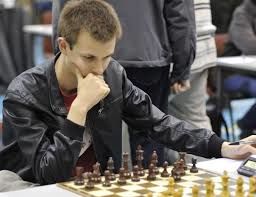Neuroticism
The Purpose of Purposelessness (Part 3 of 4)
How might "playing to play" be the way to Enlightenment?
Posted April 15, 2010

The Dichotomy Between Achieving and Be-ing
If, ultimately, it's you alone that decides on your life's purpose, how much sense does it make to engender one that's long on work and short--or even absent--on play? Using the analogy of a baseball game (or any sport, for that matter), once it's played with purpose, it really ceases to be joyful. Only the result--that is, if it's the right result--can be experienced this way. But the actual playing of the game is no longer playful once, alas, it's becomes purposeful. And this is how, inadvertently, we manage to take so much fun out of games. Unwittingly compromising our experience--and exemplifying ironically the law of unintended consequences--we turn "purposeless play" into "purposeful play." And in so doing we lose most (if not all) of the play.
Further, the contrast between playing and winning dramatically underscores the dichotomy between non-conflictive be-ing and the struggle for victory. Whereas play comes naturally and effortlessly, achieving victory can be laborious and demanding. Sure, it may feel great to win but the endeavor to do so may not really be a lot of fun.
To give a more concrete example of what I'm describing, if you're playing baseball just for fun, you're playing it mindfully--in the moment. You hit the ball as hard as you can, you see (pitch by pitch) whether you can strike the batter out, you run as fast as you can to stomp on a base before the ball you swatted can be relayed there, and so on. It's the "purposeless challenge" of the game that makes it refreshing, invigorating-even thrilling.
But if instead you're focused on winning, your behavior can't be "play-driven"; it's "purpose-driven." Of necessity, it involves an emotional investment more likely to induce frustration and anxiety than the pure, unadulterated joy of "objectless" play. In fact, it might be asked whether "purposeful play" is really play at all. For, at the deepest level, such meaningful "play" is antipathetic to the whole notion of fun, fancy, and amusement. The motive to win adds a certain heaviness to play that fatally undermines it. "Playing to play," on the other hand, is lightness itself . . . and perhaps even the way to enlightenment.
In the context of professional sports, we might even speak of the "business" of play--or (much more accurately) the "business" of winning. For winning teams generally net a lot more revenue for their owners than do losing ones--and, of course, the players themselves are paid according to their "value" in helping their team defeat opponents. The pure pleasure of playing is replaced with, well, cash--the amount of which is determined on the basis of performance, or results. Joy doesn't enter into the equation at all, for such a transaction is--pure and simply--about corporate profits. In a word, it's "profit-driven".
After all, one of the things that makes purposeless activity joyful is that it's unto itself. By itself, it is enough; it is complete. But with purposeful activity, everything exists for a reason and is to be judged by its success. And with such a purposive orientation a single success is rarely enough. There must be more, and more, and more. . . .
Here's an example. When in 2008 The Philadelphia Phillies won their first World Championship in 28 years and the city--temporarily giddy (not to say, ecstatic) by their team's victory--held a huge parade in their honor, the Phils' pitching ace, Cole Hammels, was eager to address the worshipful fans. Jubilantly, he talked about how the team was going to repeat this fervent Broad Street celebration next year as well (which, incidentally, never happened. Even though the Phillies did make it back to the World Series, they couldn't beat the New York Yankees and--ironically--one of the main reasons for their failure was that Hammels himself somehow managed to transform himself from hero to goat).
My point here, though, is that even when a team wins a championship, it still doesn't feel as though it's quite enough. Despite the inexpressible joys of the occasion, there's still an aching awareness that their victory is ephemeral--and so the consequent need (or compulsion) to recapture this time-limited bliss by winning again--and again--and again. Which, of course, is impossible, so that the victory itself is suffused with an ominous sense of precariousness and discontent. And, sooner or later, it's this winning orientation that guarantees disappointment and failure. For even the storied Yankees (by far the best team in the history of the sport) don't--can't--win every season.
In his Vedanta: Seven Steps to Samadhi, the Indian spiritual teacher, Osho, has much to say on this critical subject. And much of what follows here will draw on his ideas. To begin with, Osho distinguishes between the "nonachieving mind" and the "achieving mind"; and it should be obvious from what's already been discussed which mind belongs to your playful child part and which to the adult. To Osho:
". . . an achieving mind . . . is always trying to achieve something or other. And whenever something is achieved, again and again the mind asks, "Now what? What is to be achieved now?" It cannot remain with itself, it has to go on achieving. This achieving mind will never be blissful, it will always be tense. And whenever something is achieved the achieving mind will feel frustrated, because now new goals have to be invented.
". . . So the whole of American business now depends on inventing goals. Give people goals--that's what advertisements and the whole business of advertising is doing.
 "Create goals, seduce people: 'Now this is the goal! You must have this, otherwise life is purposeless!' They [the populace] start running, because they have an achieving mind. But where does it lead? It leads into more and more neurosis. Only a nonachieving mind can be at peace. . . ."
"Create goals, seduce people: 'Now this is the goal! You must have this, otherwise life is purposeless!' They [the populace] start running, because they have an achieving mind. But where does it lead? It leads into more and more neurosis. Only a nonachieving mind can be at peace. . . ."
Osho laments how society--or more specifically, American capitalistic society--has robbed us of our innocence and seduced us into a never-ending quest for materialistic fulfillment. But to this Eastern thinker, our dis-ease, or subversion, derives from a whole host of sources. Again, in his own words:
"Your mind has been corrupted by economists, mathematicians, theologians . . . because they all talk about purpose. They say, 'Do something if something is achieved through it. Don't do anything which leads nowhere.' But I tell you that the more you can enjoy things which are useless, the happier you will be . . . the more innocent and blissful. . . . When you don't need any purpose you simply celebrate your being."
And a few pages later, Osho continues his broad cultural critique, by adding:
". . . Universities, colleges, education, society, have corrupted you. They have made it a conditioning deep down within you that unless something has a purpose, it is useless--so everything must have a purpose."
If, finally, being "afflicted" with purpose is almost a curse, then how can you best live in a way that responsibly combines the necessities of work with the equally important digressions and distractions of play? The fourth--and final--part of this post will (a) expand on Osho's notions about the nonachieving mind, and (b) summarize the advantages of living your life (as much as practically possible) without purpose.
Note: For those who missed earlier parts of this four-part post, Part 1 focused on defining and illustrating purposelessness, as well as distinguishing it from its addictive counterpart, and Part 2 highlighted the various connections between purposelessness and "productive" play.
---I invite all readers to follow my psychological/philosophical musings on Twitter.




